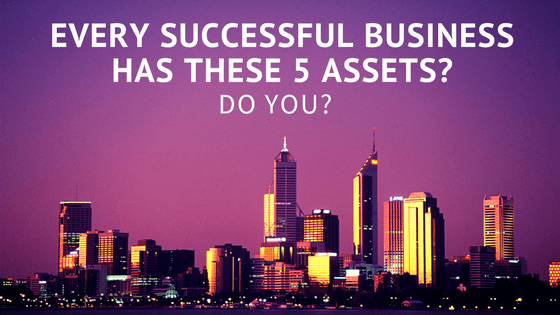With the rapid development of the internet, smart phones, cloud services the world has got smaller and more competitive.
Today a customer can order a product and it can be shipped to them across the other side of the world in 3 – 5 days. With the development of 3D printers then you can even print the product on your desk and as such carry no inventory.
Truly amazing.
Some business owners become intimidated and frightened by competition. How will they compete against bigger or in most cases more nimble companies?
As Charles Darwin wrote, “extinction happened to those species that did not adapt to change.”
How are you adapting to change?
Are you nimble and efficient and getting rid of the baggage that holds you down?
I believe competition is good. It brings out the best in you and makes you strive harder to improve and grow. How do you feel?
For example, when you start a business, you want there to be competition. Since if there was no competition, there may not be a market or customers who want to buy what you are selling.
And once in business, competition is generally good since it forces your company to get better. It forces you to better satisfy customers (or they will choose your competitors) and it forces you to become more efficient (so you reap more profits even if you have to offer more competitive pricing).
Now, while competition does provide these advantages, you clearly want to have less competition, and you’d like for fewer new competitors to enter the market. In doing so, you’ll enjoy more of a monopoly in your market, which means more customers and more profits.
The best way to protect yourself from the competition is to build strategic business assets.
Now as an owner or manager of a business your main focus is to improve the return on the assets in your business. That is your goal and main driver.
Too many managers or owners don’t focus on this fact and spend money (or waste money) on assets that don’t add value to their company or give them a poor return on their investment
The best way to knock competitors out of your market and discourage new entrants is to build “business assets” that give you a point of strength or a key point of difference from your competitors.
We describe business assets as resources you build now that will give you and your company future economic value.
Here are five examples of business assets you can build:
Customers: Most mobile phone companies offer 2-year service contracts that all new customers must sign (and face penalties if they leave before the two years are up). This essentially “locks up” customers making it harder for new entrants (or existing entrants) to come in the market and take their customers.
Now everyone is offering contracts or terms including electricity companies, gyms to receive special discounts or prices.
Customer agreements and contracts are one of the most powerful business assets you can build.
Can you lock up your customers for a set period ie 12 months or 6 months?
This will give you a huge asset.
It will also give you peace of mind. You now have a firm guide to what revenue you will earn over the next 6 or 12 months. you can plan with some peace of mind and assurance.
You can now direct your focus on how you can grow your business further by attracting more customers or offering your current clientele more services or products.
This should be a priority for you short term goals to secure a definite plan for revenue.
Systems: Most franchise organisations (e.g., Subway, McDonald’s, etc.) have made significant investments in systems in areas such as taking orders, producing products, handling customer complaints, etc.
These systems make it easier and less expensive to hire and train employees and better service customers. This makes it harder for others to compete against them.
Many companies who have built customised software that allow them to perform faster, cheaper, and more consistently than their competitors.
For your business, it can simply be systems for taking orders, a script for people to follow. All the basic procedures and policies for your business should be documented.
This gives your staff certainty about what they should be doing in every aspect of their job and secondly it gives you time to focus on growing your business because you don’t have to field questions on every matter.
Can you build new systems to make your company more effective and efficient?
PPE (Plant, Property and Equipment): Is there some machinery, plant or property that will give you a unique advantage.
Don’t go overboard with this and think that you need to buy the latest machinery that will give you a huge break. You need to think about this a little more.
Maybe you can utilise someone else’s plant and machinery.
Can you make investments in plant, property and equipment that allow you to cut costs or increase output?
Product or Service Variations: A local pizza shop promotes itself as having 36 varieties of pizza. Offering this large variety makes it harder for new pizza companies to enter the market. Because a new company would have a very hard time creating 36 varieties from the start, it would be harder for them to satisfy customers.
You don’t want to go too overboard with this but are there some products you can easily add to your range that your customers require and they compliment your current product range.
Take Apple as an example they have built their business around their operating system and then offered different products for customers to use their system with iPhones, Ipads etc.
Then they have progressively added other products such as keyboards, pens, ear pods to give them other sources of revenue.
Can you develop new product and/or service options that better serve customer needs?
Exclusive Partnerships: Creating exclusive partnerships could be a key business asset that gives you a competitive advantage. For example, if you create exclusive partnerships with top organisations in your industry, they would only work with you and not your competitors.
Think about other businesses that serve your market with a complimentary product. Can you offer your products as a package, or give a special discount or offer to customers of this business. Collaboration is an important way to grow a business.
Many times we see collaboration in the music industry where different artists will join together for a special song or album. This gives the artists access to a different market and customer. Why not for your business?
Can you form exclusive partnerships to help you gain new customers that your competitors can’t?
You need to start thinking about how you can build your business assets that “unlevel the playing field.” How can you make it so that nobody wants to compete against you?
Importantly, whatever answers you come up with, realise that building these business assets will take time. Often times they may take as much as a year (or even longer). And also realise that short-term profits may go down when you are building them.
But, once the asset is built, you may profit (and profit big) for years.
So make sure to properly plan and prioritise the development of your business assets, even though they often have less short-term benefits than other activities (such as setting up a new advertising campaign).
Set a long-term goal for when you want the assets built. And make sure that you build time into your daily, weekly and monthly schedules to move the development forward.
Doing so will dramatically improve your revenues and profits, and at the dismay of your competitors who will be forced to go elsewhere.




